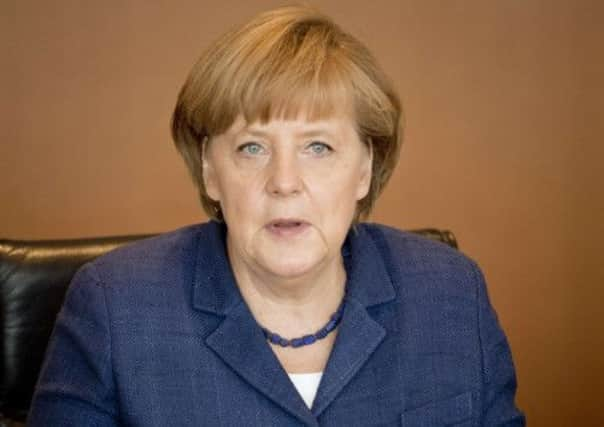Angela Merkel fends off claims over her past


The book, The First Life of Angela M, says that Ms Merkel – who will seek a third term as German chancellor in a federal election in September – was responsible for Marxist-Leninist education in a unit of the state’s youth wing, in a role that went beyond the cultural duties she has previously spoken of.
Asked about the claims on Sunday after a screening of her favourite film, a 1973 East German love story, Ms Merkel, 58, said she had always spoken openly and to the best of her memory, adding: “What is important to me is that I never kept anything secret.”
Advertisement
Hide AdAdvertisement
Hide AdThe book’s claims are unlikely to affect Ms Merkel’s chances of re-election but they highlight how enigmatic she remains after nearly eight years in power.
German media have had a field day printing pictures of Ms Merkel, who is extremely protective of her private life, as a willowy 20-something on Baltic beach holidays, tending a camp fire and drinking with friends, as commentators try to fathom her early political persuasions.
Ms Merkel joked there may be other aspects of her earlier life to be unearthed, saying: “It is always the case that when something emerges, which of course from the perspective of the former West Germany looks very different, then people say, ‘She hasn’t told us this yet’.
“Maybe there are other things I didn’t talk about because no-one ever asked me.”
Ms Merkel was 35 when the Berlin Wall fell in 1989 and was a scientist at an academic institute. She has described her early life as non-political.
Ms Merkel said she was a cultural official for the Free German Youth, the movement nearly all East German youngsters joined as teenagers. The new book repeats previous claims the role was as an “agitation and propaganda functionary”.